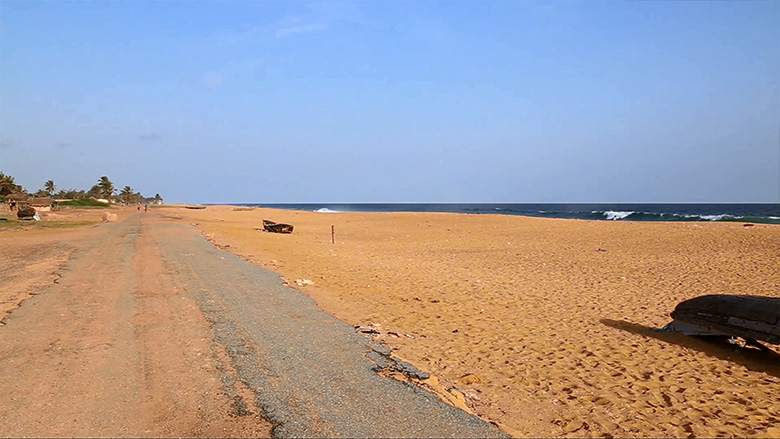
For generations, coastal communities in West Africa have lived off the land and sea, depending on the region’s abundant natural resources for their nutrition, health and economic activity. Coastal habitats such as mangroves and coral reefs, both important breeding grounds for fish, as well as hydrocarbon and mineral deposits, have helped foster thriving cities, trade, commerce and economic development in the region’s coastal zones, the source of 56% of West Africa’s gross domestic product (GDP.)
Today, people who live in West Africa’s coastal areas face a different reality. As sea levels rise and severe weather events increase in frequency due to climate change, their safety and wellbeing is continuously at risk, with poor and marginalized populations proving most vulnerable. Without concrete measures to mitigate and adapt to the effects of climate change, West Africa’s development achievements, as well as hopes for continued growth and poverty reduction, will be severely compromised.
The World Bank’s West Africa Coastal Areas Management Program was established in 2015 to help manage the wide range of challenges that threaten West Africa’s coastal assets, and the serious consequences for the region’s rapidly growing population. The most dramatic and visible impact stems from coastal erosion and flooding. Thirty-one percent of West Africa’s total population and 51% of its urban population lives in coastal areas. Across the region, flooding now affects an average of 500,000 residents per year. People are losing their homes and livelihoods as entire villages and towns are destroyed by coastal erosion. In some areas, devastatingly high erosion rates of 23-30 meters per year have been recorded, often resulting in the loss of national infrastructure such as roads.
Climate change will exacerbate the existing physical, ecological, and socio-economic stresses on the West African coastal zone. Human induced habitat loss, overexploitation of natural resources, rapid urbanization, marine and coastal pollution, and poor environmental governance all contribute to the degradation and vulnerability of coastal areas along West Africa’s shoreline.
Historically, coastal environmental management has fallen under the authority of a few individuals or institution, often with little political weight or capacity to advance reforms and mainstream environmental concerns into policy and planning. This must change, as the nature and scale of the problem demands intra-governmental and especially regional collaboration. If designed in isolation, one country’s national coastal strategies can end up having unintended consequences in neighboring countries.
Given the urgency of the situation, governments must come together to take informed action to ensure sustainable trans-boundary solutions and investments are made to save West Africa’s precious coastal assets. To not act is to condemn the people who live along the coast and depend on it for their livelihoods and prosperity to a future of diminished prospects.




Join the Conversation